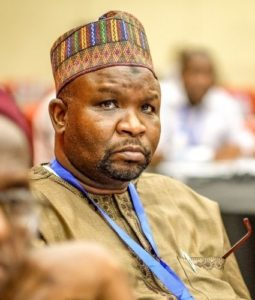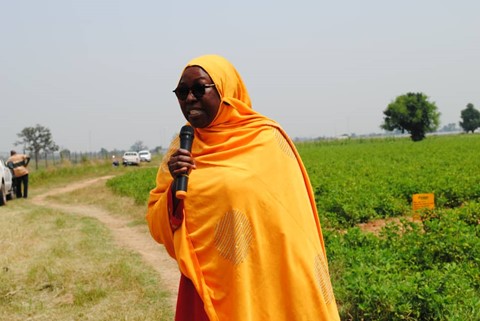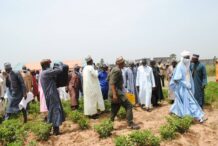CDA Develops Seven (7) New Early Growth Groundnut Seeds for African Farmers
CDA Develops Seven (7) New Early Growth Groundnut Seeds for African Farmers
The Centre for Dryland Agriculture (CDA) of Bayero University (BUK) in Kano (Nigeria) has developed seven early growth groundnut seeds for farmers. The centre also unveiled improved seed varieties of sorghum, beans and millet at the centre’s Farmers’ Field Day held on Wednesday, 6th October, 2021.
The Field Day was aimed at showcasing the newly improved seedlings developed by the centre to farmers and extension workers in Nigeria and sub-Saharan Africa.
Several factors have been identified as the reason for the decline in groundnut production in Nigeria such as drought, rosette virus, general neglect of agriculture due to oil boom, and lack of organized input. However, the CDA in collaboration with International Crops Research Institute for Semi-Arid Tropics (ICRISAT), Zaria, and Institute of Agricultural Research (IAR), sponsored by Bill and Melinda Gates Foundation took the challenge to revive the production of groundnut by providing new improved seeds to farmers for sustainable production under the AVISA Project.
According to the Director of CDA, Professor Jibrin Muhammad Jibrin, the new seed varieties are drought resistant and if properly used, will help Nigeria, and by extension, Africa, to achieve food sufficiency.
“The seeds are pests and diseases resistant, grow early and lead to bumper harvests. If these seed varieties are used, farmers have the potential of yielding bigger harvests from the same lands they are using the traditional seed varieties. The groundnut we developed for instance has the dual purpose of more crop yield and bigger leaves that could be used as animal feed,” Professor Jibrin added.

The centre director, Prof. Jibrin M. Jibrin stated that “the centre has already adopted about 22 communities from the university’s neighborhood as models for testing the new seeds.” The Principal Investigator of the Project, Professor Sanusi Gaya Mohammed, in his remarks, said that through their research process, they screen the seeds and come up with those that will be given to seed companies to multiply their production for farmers use.
Professor Mohammed, the Deputy Director of Training at CDA, mentioned that apart from groundnut seeds, the CDA has been supporting the farmers with cowpea, beans, and millet seeds which have significantly improved their yields.
On her part, the Deputy Director, Outreach and Publications, Professor Amina Mustapha, said that the AVISA Project is one of many outreach programmes the centre runs, alongside collaborations with many partners in Nigeria and around the world.
Prof. Mustapha said that the CDA has been engaging its 22 adopted companies with modern agricultural farming methods, empowerment of improved seeds, as well as skills and training that improve their production and expand their awareness. She said the centre would continue to give emphasis to its outreach activities.

The Country Director of ICRISAT, Dr. Hakeem Ajeigbe urged the farmers to critically look at the seeds in order to give their feedback to the researchers. He said it would really benefit the research activities.
Also speaking, Professor Yeye of Institute of Agricultural Research, Ahmadu Bello University, (ABU) Zaria, said the AVISA Project aims to improve the research activities through the use of various tools and application to enhance the process. It also aims to provide the seeds to farmers and educate them on the use and application in order to improve the yields.
Others who spoke were Professor Daniel Aba of IAR, Dr. Abou Togola, and Ado Garba from the Kano Agricultural and Rural Development Agency (KNARDA).
Farmers interviewed expressed appreciation to the CDA and its partners for helping with the improved seeds. They expressed optimism that they would adopt the new improved seeds so that the production of groundnut and other crops would be on higher scale in Nigeria.
